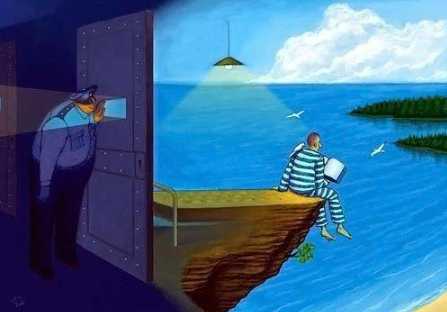The importance of prison education and its references in pop culture.
- Lucía Nieto

- 14 janv. 2025
- 3 min de lecture
Dernière mise à jour : 26 mars 2025
Often, when we talk about education, we tend to think about compulsory education and sometimes even about voluntary university education, forgetting adult education altogether. We also forget that within this group of adults there are persons deprived of their liberty who also deserve and need to continue their education in order to be able to carry out a more successful social reintegration in the future.
The main pillars of the reintegration process for formerly incarcerated persons are based on education and training, access to employment, psychosocial and mental health support and community support. Of course, these pillars need to be aligned in order to achieve the main efforts of social reintegration and rehabilitation of prisoners. Education in prison has proven to have great benefits. It provides an opportunity for prisoners to change the course of their lives.

To find examples of how important education is for people who are deprived of their liberty we can look to popular culture. It is not only through films and series that we can observe the importance that education in prisons can have, but also through the story of real characters from pop culture. In Spain, to illustrate this last example, we find the story of Eleuterio Sánchez Rodríguez, “El Lute”. While in prison, he learned to write and studied law. After his release, he reintegrated into society as a writer and symbol of social reintegration.
On the one hand, although there are no direct references to personalised or group education in prisons, in classical literature, later taken to the cinema, we find works such as Les Misérables by Victor Hugo where it is illustrated how the lack of access to education makes the protagonist feel “more beast than man,” showing that it is important to continue educating himself in prison in order not to lose his self-concept as a social being and as a member of society.
On the other hand, there is the curious example of Orange Is the New Black. The famous series from the 2010s tells us about the life of prisoners in a women's prison and how education is a means of escape and self-improvement. One detail to note about this series is that it takes place in a women's prison, because if education in prisons is a great unknown, education in women's prisons is the last step on this ladder of ignorance. In various chapters, we can see how, through not only academic programmes but also vocational training, the different female prisoners manage to find a way of transforming their lives and face their past with new tools for the future. Education becomes a form of resistance within the prison system.

A society that promotes education within prisons not only supports individual development, but also reinforces the fundamental values of democracy, offering each individual the opportunity to redeem his or her life and actively participate in building a more just and equitable community. Furthermore, education fosters creativity and innovation, essential tools for prisoners to find new ways of thinking and to face the challenges of life. Education in prison not only changes the lives of prisoners, but also transforms our view of justice, rehabilitation and forgiveness, contributing to a more inclusive, innovative and democratic society.
What is clear is that we must continue to work for, fight for and protect education in prisons. References in pop culture, by highlighting the transformative impact of education, bring us ever closer to this goal, helping us to give it the importance it really deserves.






Commentaires